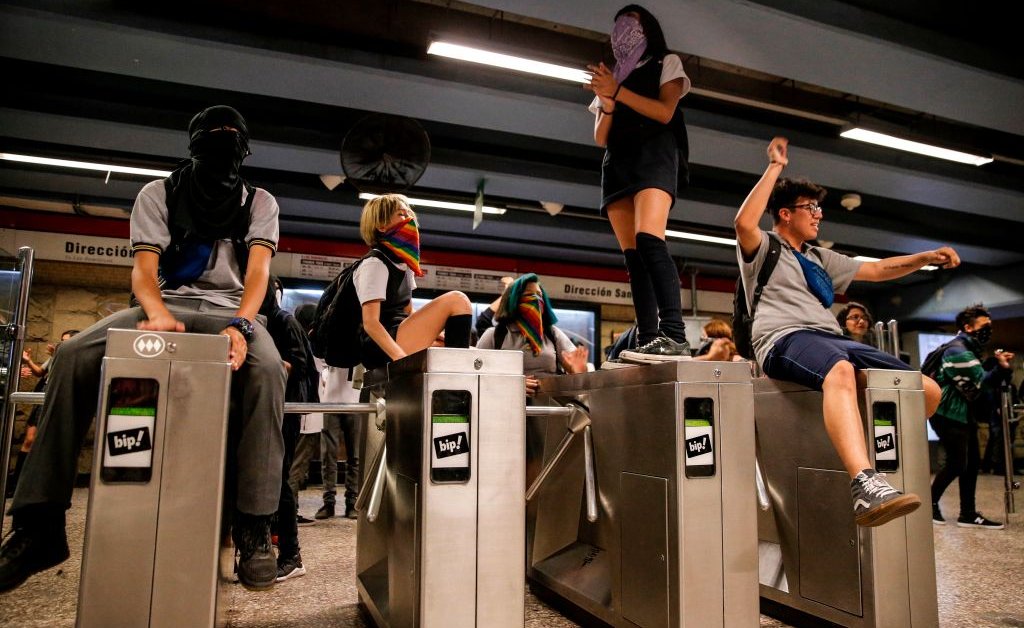Contribution or Prohibition of SDG Progression: Factors influencing the Global South’s SDG Advancements
After completing the podcast project focused on UN Sustainable Development Goals, there seem to be both similar and differing international factors driving progress or a lack thereof.
For instance, my assigned country, Chile, has been plagued by political protests most recently beginning in 2019. However, after listening to my AUS and Dickinson peers’ podcasts, Chile is not the only Global South state facing instability in societal institutions.

Photo credits: Crisis Group Photo description: Algerians protesting government corruption
Alike Chile, Algeria also faces these protests similar to the timeline of Chile’s most recent uprising. Though Algeria is surrounded by weak democratic institutions and by the concerning high terrorist activity, protests have emerged to counter this lack of progression the same way protests have ignited in Chile. In the Algeria podcast, there was importance placed on how their younger population is seeking to change the country’s corruption. In fact, in 2019 there were the pro-Hirak protests that were led by students in an attempt to oust the then president, Abdelaziz Bouteflika. I particularly like when this podcast group recognized that the young population was “agitating for change” and “impatient for change.”
Chile, too, had student-led protests that offered a similar attitude. Inspired by the 2011 Egyptian protests with the Serbian Youth Movement, this seems to be a pattern—young people having the particular energy to recognize corruption and necessary change. I wonder if Algeria’s student-led protests are also related to the Serbian youth movement. This, then, would relate to the concept of diffusion in particular with protest tactics and demonstration effects across states. These demonstration effects of young people protesting in Algeria and Chile’s case, thus, have allowed for more progression of SDG 16.

Photo credits: Time Photo Description: Chilean students protesting bus fare increase
However helpful protests are as an international factor driving the need for change, the fact that it is needed in the first place shows a lack of social cohesion in the Global South.
As the second factor contributing or prohibiting SDG progress, social cohesion can also be created as a result of protests. Having more social cohesion over less is one determinant for how successful a country can be with the Goals. For example, Singapore’s podcast highlights how an increased amount of transparency of institutions allowed for more social cohesion. In contrast, social cohesion is less apparent in Chile.
On top of protests and social cohesion being a factor that can both inhibit and allow for more or less progress with the Goals, the connection to a colonial power can affect the extent of success. For example, while listening to the Singapore podcast, it was mentioned that this country had risen out of colonial power, which has allowed it to grow independent and have better access to global markets. In contrast, in Senegal, the historical ties to colonial power, still being seen today, have impacted their dependency dynamic with other countries.